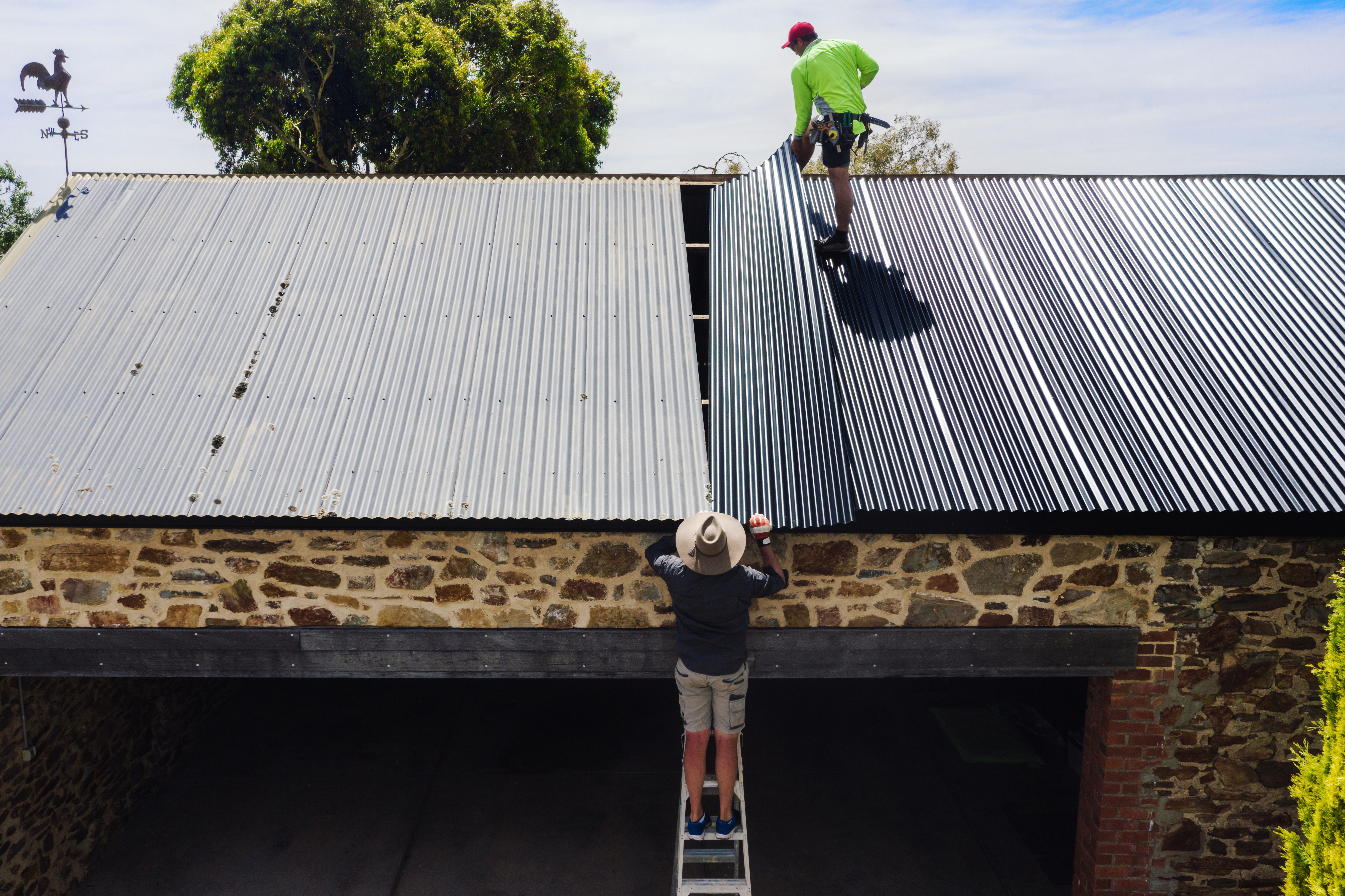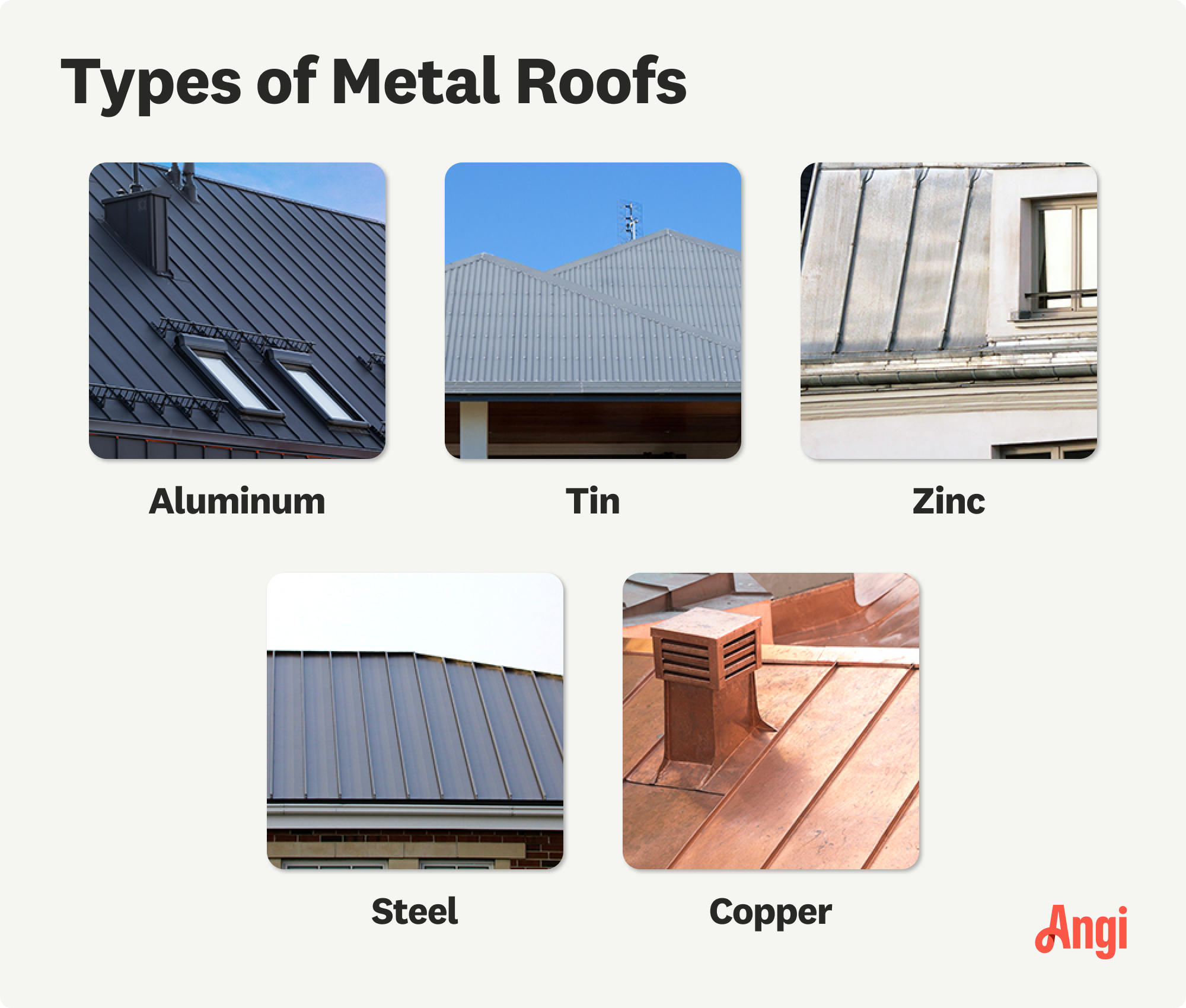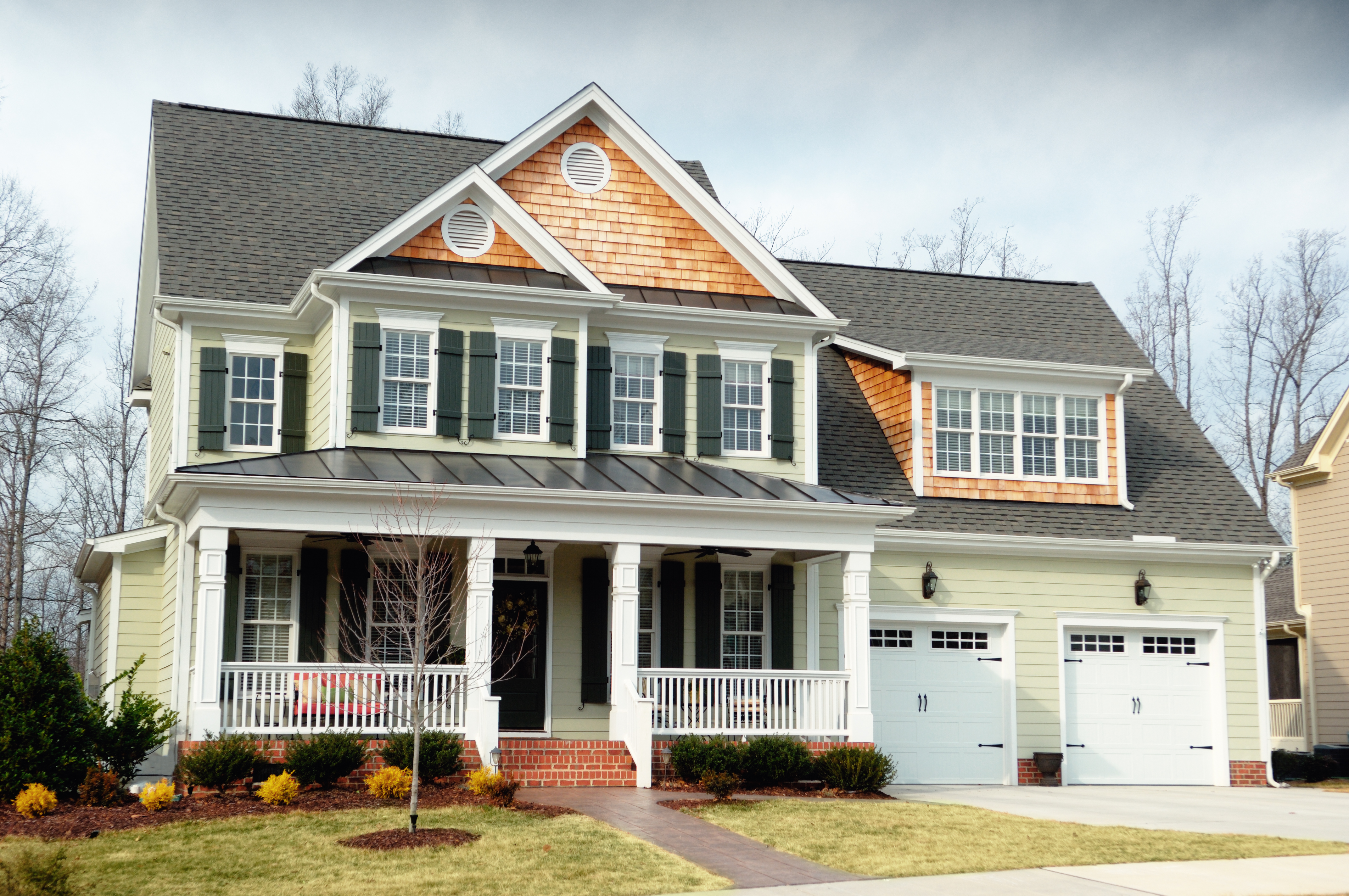
Learn about roof replacement costs in Columbus and what factors are at play to budget accurately and make sure you’re getting a fair price.
Metal roof costs in Atlanta average $9,028 and range between $4,698 and $13,358. Your roofer will base your cost on roof size and complexity, as well as the materials you choose.


The size of your home and the type of metal you choose are the two most significant cost factors.
A thicker metal gauge costs more but stands up better to temperature swings and severe weather in Atlanta.
Metal roofs are a great investment in areas like Atlanta, where rainfall increases the risk of roof leaks.
Consider paying a bit more to add insulation under your roof to improve your home’s energy efficiency during the hot Georgia summers.
Metal roof costs in Atlanta average $9,028, and most homeowners in the Big Peach pay between $4,698 and $13,358 for materials and labor. The size of your home and the specific metal you choose for your roof will largely determine your total, but things like roof style and the gauge of the metal are other important factors to think about. Many residents add insulation under their roofing for $1,000 to $1,500 extra to help combat the severe weather.
Metal roof costs in Atlanta can fall as low as $1,400 and can climb up to $24,500. Where in that range your total will fall depends on a few key factors.
The most important factor to consider to get an accurate estimate for your roofing project is the size of your home. Metal roofs cost an average of $11 per square foot, so installations on larger homes with bigger roofs to cover will cost more.
Putting a metal roof on a 1,500 square foot home in Atlanta would cost $19,800. Many homeowners install metal on just a portion of their homes as an accent material, so your cost will be much lower if that’s your plan.
| Roof Size (Sq. Ft.) | Average Cost |
|---|---|
| 100 | $1,100 |
| 250 | $2,750 |
| 500 | $5,500 |
| 1,000 | $11,000 |
| 1,500 | $16,500 |
| 1,800 | $19,800 |

When you install a metal roof, you have a few different materials to choose from, all of which vary in cost, curb appeal, and durability.
Since metal roofing is a common decorative option and accent material in Atlanta, you may want to consider a high-end material like copper, which costs the most but adds more to your home value and curb appeal than any other option.
Steel is the most common option and comes with a moderate price tag, but given the high humidity and frequent rainfall in Atlanta, improper installation and roof damage can lead to rusting. Aluminum and tin roofs cost less but don’t last as long and don’t look as nice.
| Type of Metal | Cost (per Sq. Ft.) | Pros | Cons |
|---|---|---|---|
| Aluminum | $4–$11 | Affordability | Curb appeal |
| Copper | $15–$30 | Curb appeal | Up-front cost |
| Steel | $6–$16 | Popularity | Prone to rust |
| Tin | $5–$12 | Affordability | Longevity |
| Zinc | $6–$12 | Weather resistance | Availability |
Standing seam roofs are the most common type of metal roof in Atlanta, with metal shingles coming in at a close second for curb appeal. Standing seam roofs are more expensive to repair if your roof gets damaged by a tropical storm, but they’re the most widely available option in Atlanta. Metal shingles are less likely to warp or shift as the metal expands and contracts with the wide temperature swings in the city, but they’re less popular, so you may struggle to find a roofer in Atlanta who offers this style.
| Roof Style | Cost (per Sq. Ft.) |
|---|---|
| Corrugated | $3.50–$15 |
| Metal shingles | $7–$22 |
| Standing seam | $7–$30 |
Most residential roofs are either 24- or 26-gauge, which refers to the thickness of the metal. A lower gauge is thicker and costs more, but is less susceptible to expansion and contraction as the temperature in Atlanta shifts from near- or below-freezing in the winter to the high 90s in the summer.
It’s also worth investing in a thicker metal material in Atlanta—you can consider going as thick as 22-gauge—to reduce the risk of denting. The city sees quite a bit of tropical storm activity from hurricanes that hit Florida and weaken as they travel into Georgia, and these can bring strong winds that blow debris onto your roof. Thicker gauges will increase material costs but can help maintain a good curb appeal over time.
Many residents in the ATL invest in insulation under their metal roofing, which adds between $1,000 and $1,500 to the total, on average. One common complaint about metal roofing is how noisy it is during rainfall, and since Atlanta sees around 1.5 times the national average amount of annual rainfall, insulation is a good investment in the area if you’re thinking about installing a metal roof.
Insulation will also help improve your home’s energy efficiency, reducing heating and cooling costs in Georgia’s cold winters and extremely hot summers. As such, it could end up paying for itself over time.
The labor to install a metal roof in Atlanta averages $4,500 and often includes the cost to remove your old roof. Double-check with your roofer that removing and disposing of the old material is included.
Most metal roofers will also include the cost of necessary permits for roof replacement in your total. The City of Atlanta charges a $150 base fee for a roof replacement fee plus a $25 technology fee for filing, bringing the total to $175. Most roofers will include this fee in their estimates, but you should check to make sure before signing your contract.
A metal roof will increase your home value no matter where you live because it improves curb appeal and makes your home more appealing to prospective buyers.
In a place like Atlanta, it can add even more than usual to your home value, though. Not only will a metal roof look great initially, but it also resists moss and algae, which can quickly ruin asphalt shingle roofs in humid areas like Georgia. It also stands up better to roof leaks than asphalt shingles, making it a desirable option in Atlanta, where annual rainfall is around 1.5 times the national average.
Metal shingle roofing has reflective pigments to act as radiant barriers, and their shape creates an air gap or thermal break between the metal and the roof deck, stopping conductive heat transfer, making them great for summer efficiency.
Home is the most important place on earth, which is why Angi has helped more than 150 million homeowners transform their houses into homes they adore. To help homeowners with their next project, Angi provides readers with the most accurate cost data and upholds strict editorial standards. We survey real Angi customers about their project costs to develop the pricing data you see, so you can make the best decisions for you and your home. We pair this data with research from reputable sources, including the U.S. Bureau of Labor Statistics, academic journals, market studies, and interviews with industry experts—all to ensure our prices reflect real-world projects.
Want to help us improve our cost data? Send us a recent project quote to [email protected]. Quotes and personal information will not be shared publicly.
From average costs to expert advice, get all the answers you need to get your job done.

Learn about roof replacement costs in Columbus and what factors are at play to budget accurately and make sure you’re getting a fair price.

Dealing with a visibly damaged roof or leak? Learn about roof repair costs in Columbus to see how much you’ll need to budget for a permanent solution.

Sealing your roof can help preserve its life span—you just have to choose the right coating. This guide will help you budget for your total roof coating cost.

Discover the cost to paint a metal roof, including average prices, key cost factors, and tips to help you budget and save on your next roofing project.

Sharpen your skills and smooth your cuts with this DIY guide to cutting metal roofing. We cover everything from measurements and safety gear to which tools will give you the cleanest cut.

What's a cupola? Is it possible to have one on my home? What do they look like? Learn all about the variety of cupolas you can add to your home or barn.